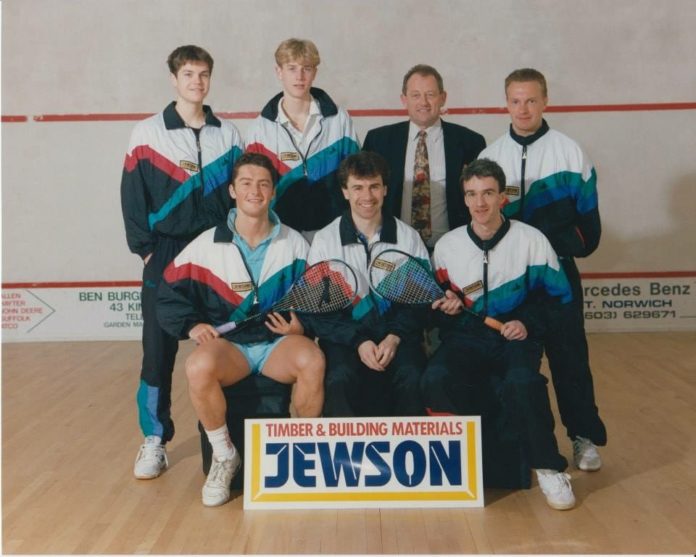by Richard Millman
I started coaching in 1977 at the Hunter Squash Club in Norwich, the capital city of the county of Norfolk in England. I had attended Gresham’s School, a boarding school in Norfolk, and, while I had gained entry through an academic scholarship, truth be told, I had somewhat lost my way on my journey through that fine institution.
The headmaster was one Logie Bruce Lockhart, still living to this day, and one of the great heroes of my life. The son of a headmaster himself, he had commanded an armored car battalion in the Second World War, played rugby for Scotland, rugby and squash for Cambridge and become one of the leading minds in education in post-war Britain.
And that description is a travesty of the full measure of the man.
For me, the reason I will always love him is that he took nothing at face value. He loved a rogue because in a rogue he saw potential—perhaps potential temporarily diverted from its best direction—but potential nevertheless. Around him, Logie recruited folks of a like mind, but not yes-men. He recruited people who saw the brilliance of the human species and who had a willingness to dig a little deeper, and then a little deeper still.
For this reason Gresham’s, in the period of Logie Bruce Lockhart’s tenure, produced students that were unwilling to simply accept the status quo, perceived wisdom or the accepted theory. Gresham’s under Logie Bruce Lockhart produced minds that were unwilling to go quietly into that good night, as Dylan Thomas wrote.
For that reason, when I became a squash coach, I could not simply join the flat earth society and simply accept the perceived wisdom. I could not in all conscience simply repeat whatever dogma had been passed to me and pass it on unchallenged.
Recently, I have been reading the brilliant book Legacy by James Kerr—the story of the New Zealand All Blacks and what he believes they can teach us about the business of life. In the third section of the book, entitled “Purpose”, Kerr talks about a period after the All Blacks had suffered a terrible defeat at the hands of its great rivals, the Springboks of South Africa, and had returned home in ignominy. Kerr describes how the coaches set about “a complete overhaul of the most successful sporting culture in human history.”
It is a wonderful chapter and well worth the read, but the net conclusion is the following: “Reasons lead to conclusions, emotions lead to actions. Begin by asking, Why?”
That is what I did in 1977. I said to myself: What right do I have to pass on information to my students without questioning whether or not I believe it myself? And I realized right then and there that, both as a student and a coach, I had no right to ask people to accept my advice because of who I was or how good a player I was. There is only one basis for accepting advice and that is because it stands up to the candle light of reason. Begin by asking why.
By seeking their true purpose, by asking why, All Blacks head coach Graham Henry, his assistants and support staff and the players of the All Blacks turned a failing program back into a successful program. The All Blacks have now won the last two World Cups and are favored again in 2019.
As you work on your squash game and you are confronted by information, tips and techniques, training schemes and wisdom, whether it’s me or anyone else, before you start accepting it, make sure you do one thing above all others. Begin by asking why.


